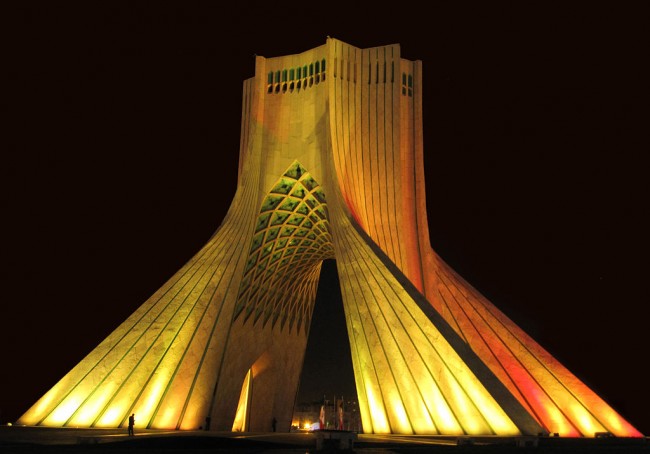
By Bakhtyar Aljaf
Iranian Foreign Minister Mohammad Javad Zarif expressed his resignation, a quiet diplomat and a seasoned politician, one of the soft faces of Iran’s foreign policy, for what is known as a political wisdom who can able to bring Iran an acceptable nuclear agreement. It was enough when the dean of diplomacy of the 20thcentury Kissinger given him a copy of his book dedicated with “To my enemy who deserves respect”.
His political independence gave him a margin for political maneuvering, which was rarely had his predecessors from the former Iranian foreign ministers. But the mentality of the revolution seems to be dominating the mentality of the state in Iran. The result is that he announced his resignation on 26.02.2019 and which was rejected from President Rohani who is reformer like him.
The possibility of the possibility of the political transformations in Iran is closer to speculation than expected. We can’t analyze about Iran’s foreign policy without Zarif, as long as Iran today seems to not care about the consequences of confrontation with the international community.
President Rouhani himself may be a subjected to a scenario similar to Zarif scenario. Eventual questioning in the parliament and the call of former Iranian President Ahmadinejad to his impeachment and forming a transitional government to continue confrontation with US.
The reformist movement in Iran believes that the conservatives along with the deep state clerical establishment is convinced that if things continue as they are internally and externally, the character of the next president will be military. The new Leader should be a strategic military figure such as Qasem Soleimani (Commander of the Quds corps) or Mohsen Rezai (former commander of the Iranian Revolutionary Guard and the current secretary of the Expediency discernment council). General Qasem Soleimani will stay as the key figure among others, because of his relations with the deep state, and even externally with his relations with various political and military movements in the Middle East) Iraq, Syria, Yemen, Libanon) connected to Iran.
Despite the many reasons discussed in the background prompted Zarif to resign, this resignation indicate that there is a big dissidence in the Iranian political system. At the time Zarif called for necessity of Iran to deal with European conditions more seriously , the Supreme Leader Ali Khamenei issued the most critical words to the Europeans, and considered them as partners with the US in an attempt to destroy Iran.
The main reason behind this resignation is the nature of dealing with Iran’s foreign policy. The bilateralism that has characterized Iran’s foreign policy since 1979. The Iranian political divergence has caused a lot of paralysisAnd raise the skepticism of the international community. When Iranian Foreign Minister Zarif uses the language of diplomacy with others, we find the generals of the Revolutionary Guard and the advisers of the Supreme Leader use the language of threats and intimidation
Despite Zarif’s continuous attempts to prove an independent foreign policy away from the conservative and reformist conflict in Iran, he did not succeed in that either. Each faction has a particular view on Iran’s foreign priorities, which in turn restricted many of Zarif’s foreign efforts. The Iranian Revolutionary Guards try to return back the nuclear negotiations to the Supreme National Security Council of Iran, and withdraw the file from the Iranian Foreign Ministry.
The Supreme Leader and the Revolutionary Guards want the end of the Trump’s presidency term, without any concessions. Any succeeded foreign minister cannot change anything. As long as the Advisers of Khamenei are the planners of Iran’s foreign policy, the military diplomacy will be the shape of Iran’s foreign policy.
Zarif wrote in his memoirs published in 2013, entitled “Mr. Ambassador” says “in diplomacy, you have to always smile … but never forget that you are talking with the enemy.” He was very realistic and regarding the nuclear agreement he thinks that the agreement cannot be perfect, and an ideal deal for a party, it will be catastrophic for the other party.
Zarif who was continued attacked from the both sides (Conservatives in his country and some US officials)
Iranian conservatives described Zarif as a coward because he was studying in the United States rather than defending his country during the Iran-Iraq war of 1980-1988.
US Senator Tom Cotton, a Republican who opposes the nuclear deal, wrote a tweet about Zarif in 2015, in which he twitted “you hid in U.S. during Iran-Iraq war while peasants & kids were marched to die”.
Zarif’s answer was by congratulating Senator Cotton on the birth of his son!An experienced diplomat will be missed not only in Iran but in all global diplomacy and how much we need like him in our world today.
Bakhtyar Aljaf is the Director of IFIMES (International Institute of the consultative status with the UN)




